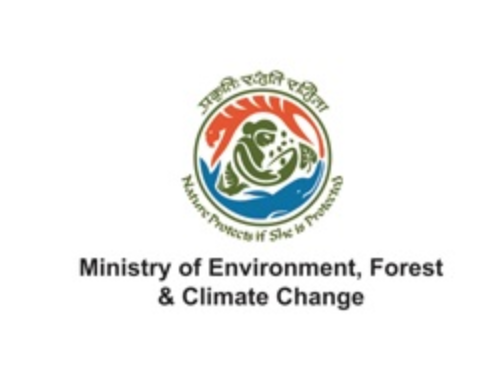The Finance ministry in a proposal to the Cabinet secretary has recommended that the Ministry of Environment and Forests and Climate Change withdraw from five premier environment institutions of the country that are now working under the MOEFCC. The disengagement has been proposed by the Department of Expenditure under Ministry of Finance. This would reduce the number of current autonomous organizations under the MOEFCC from 16 to nine. Among the institutes which have been suggested to be disengaged from MOEFCC are Wildlife Institute of India (WII), Dehradun and Indian Institute of Forest Management (IIFM), Bhopal. The Department of expenditure had suggested the disengagement under its report on need for rationalization of the autonomous bodies. The report by the department of expenditure recommended that the Society of Integrated Coastal Management be merged with the National Centre for Sustainable Coastal Management, as both perform similar roles of promoting coastal management. This merger was suggested so as to avoid duplication of activities, efforts and attain economies of scale.
The recommendation of disengagement has recommended that Indian Council for Forest and Research Education, GB PANT National Institute of Himalayan Environment and Sustainable Development and the bodies like CPCB (central pollution control Board), Central Zoo Authority (CZA), National Tiger Conservation authority (NTCA), National Biodiversity Authority would continue to function under with the financial support of MoEFCC. It was suggested that it would not be possible to withdraw support for Project Tiger as it is a huge project in which NTCA gives funds to states to carry out the work. The NTCA was established by the 2006 amendment of the Wildlife protection Act 1972.
Apart from IIFM and WII, it was also suggested that MOEFCC disengage from Indian Council of Forest Research and Education, Indian Plywood Industries Research and Training Institute, CPR Environmental Education Centre and the Centre of Environment Education. Besides ministry grant, IIFM receives money from fees. Same is the case of financial source of WII. Hence, the Finance Ministry had recommended that MOEFCC disengage from these two organizations within three years. In the interim, it was recommended, that the ministry should reduce its grant to both organizations by 25% annually.
IIFM has received Rs 37 crore in grants in 2019-20 and 2020-21, while WII received Rs 34 crore in grant from MOEFCC in both years. Grants in aid received by WII from the GOI through MOEFCC are mainly used for staff salary and infrastructure development and maintenance. The rest of the funds are raised through research projects obtained from various government agencies such as the Department of Science and Technology. WII also receives funds for carrying out assessment for different project under direction of courts like the Supreme Court or the National Green Tribunal (NGT). The Director of WII, Dhananjai Mohan had written to the Ministry on October 15 about the need of funds from the MOEFCC to keep the institute remain viable and running. In the letter, he added that the funds WII receives from the MOEFCC is needed to pay salaries, pensions and that the institute raises a meager Rs3.5 crore in services and consultation fees which would be used to pay for the pensions of the employees appointed prior to April 1, 2004, for which it is insufficient as of now. This shows that the department and the ministry (MOEFCC) are not aware of the on the ground scenarios in the various organizations which function under their ambit.
The author is a student member of Amity Centre of Happiness.





